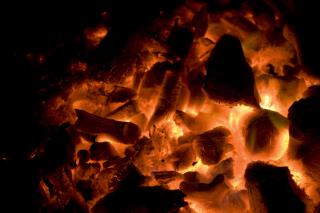
One could say that ClimateSnack is to a conference what the slow-burning wood on Norwegian TV is to a fireworks display.
In June, the remote town of Oulu in northern Finland was, for a brief time, the host for Space Climate 5. This was a gathering of space and climate researchers to present their work and discuss what it all means. But really, the true collaboration and relationships between scientists develops after the seminars are over and we head to the bar, restaurant or pub. Even us scientists like the odd drink and a good old yarn.
For complex science problems, like climate, scientists cannot work in isolation. Constantly keeping up to date with all the new developments in your own narrow sliver of the climate problem is an important, though time-consuming, part of the full-time job. Keeping up to date with related areas of research is even more difficult. So a conference can be useful. You can sit and listen to endless talks on similar areas of research and find people working on similar things to discuss with, learn from, and maybe work with. Well, that’s the idea at least! Often, poor presentations, communication or first impressions of those at the lectern leads to a missed opportunity to interact and for science to take a step forward. Conferences are also relatively rare events and once the seminar is over usually, if you are lucky, only the slides remain; much of the verbal content is lost.
ClimateSnack is like an on-going conference, but the content is never lost. The focus is to develop writing communication skills. Therefore, it is designed to make us all better at getting our ideas and research out to a broad audience of similar scientists, all the while actually getting our ideas and research out to a broad audience of similar scientists! ClimateSnack even has the direct face-to-face meetings and the socialising that results from this. Socialising is absolutely essential in science. It’s not just an excuse for a night out!
Everyone is different and it is not always clear that we will get on with everybody else. Socialising helps us to understand each other in a more relaxed setting that lowers barriers and means we don’t feel so inclined to be on our guard about our work, ideas or ourselves. We become more approachable. It fosters trust and that means thoughts and ideas can flow more easily. So, ironically, when scientists spend time together outside the lab or conference room, that is when the best working relationships can be built.
Space Climate 5 provides an example of this. Take a look at the photo. Here you have five solar physicists from around the world in one place: a Brit, a German, a Frenchman, a Spaniard and an Iranian. At the conference we presented our work and became vaguely aware of what each other did. However, we did not know one another that well and we did not really discuss our work or ideas in the conference. It is not always immediately obvious where we can help each other. But, what happened when these five solar physicists were given some beer, wine and good food? Naturally, we got to know each other, felt comfortable discussing our work, threw new ideas out there, questioned and generally had fun. The end result is that we now all know roughly what we do, feel comfortable chatting and would have no problem the next time we meet to ask direct questions or ask for opinions and advice. The connection between scientists, and for science itself, came from socialising initiated by a conference setting.
![Solar physicists ‘collaborating’. From left to right: Me (Imperial College London, UK), Micha Schoell (CNRS Orleans, France), Gael Cessateur (PMOD/WRC Davos, Switzerland), Maria Dasi Espuig (MPS Lindau, Germany) and Farhad Shakeri (MPS, Lindau, Germany). [Picture: Farhad Shakeri]](http://klimasnakk.files.wordpress.com/2013/11/farhadshakeri_oulu2013.jpg)
Solar physicists ‘collaborating’. From left to right: Me (Imperial College London, UK), Micha Schoell (CNRS Orleans, France), Gael Cessateur (PMOD/WRC Davos, Switzerland), Maria Dasi Espuig (MPS Lindau, Germany) and Farhad Shakeri (MPS, Lindau, Germany). [Picture: Farhad Shakeri]
Like the seminars at a conference, ClimateSnack is a step on the path to better communication and greater collaboration. We only get better at presenting the more we do it, but we can only improve if we get feedback. The comparison with ClimateSnack is clear. Whereas conferences often lack this feedback, ClimateSnack is founded upon it. Through this process, scientists can become better writers and communicators. They will also become aware of science related to their own work. Then, the potential for greater working and social relationships increases and science has yet another way to flourish. That is the ultimate goal of ClimateSnack and is why I snack.








Pingback: Saharan dust: the Amazon’s fertiliser | ClimateSnack()